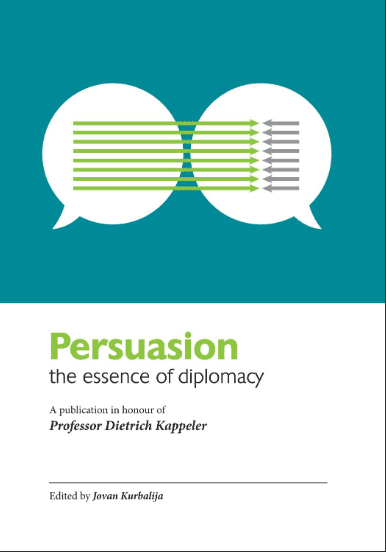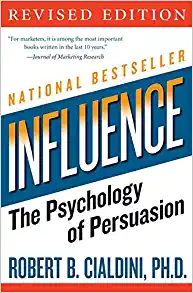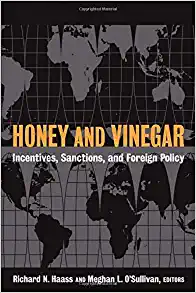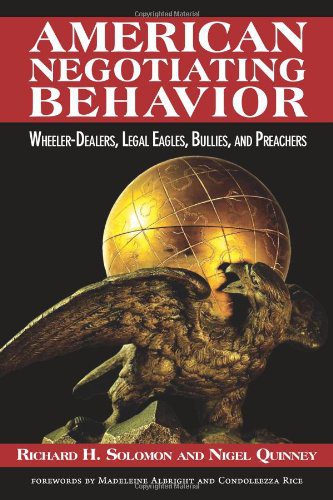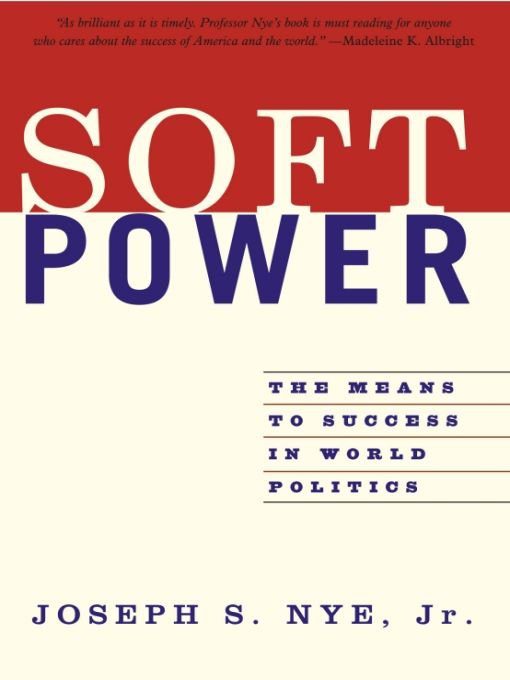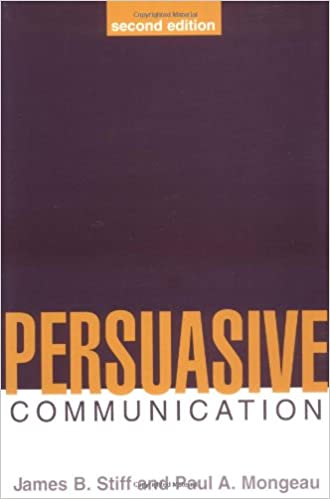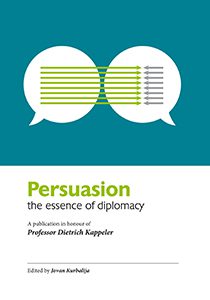Diplo: Dr Borg, could you please give us some examples from your career when persuasion played decisive role in negotiations or policy initiatives?
I can mention two instances where I think that persuasion played the determining role in discussions or in negotiations as you said. The first was in my capacity as Minister of the Foreign Affairs of Malta, and the second was in my capacity as European Commissioner.
In my capacity as the Minister of the Foreign Affairs, one of the first and the major task that I was assigned was conducting the negotiations of Malta’s accession to the EU. As the Foreign Minister I was asked to lead the negotiation process at the political level. However, I need to in a way underline the fact that government had already decided that on the successful conclusion of negotiations, Malta would be holding a referendum on accession, and therefore the Maltese people would have to decide whether or not they are in favour of Malta’s membership. This meant that we had to inform the Maltese public of what the EU was about, what membership would entail, and what we would have negotiated. In order to do so, I felt that it was important to do two things: one was to organise an information campaign, addressing the European issues to the Maltese public and citizens in general; but even more than that, of involving all the different stakeholders and the different interest groups in negotiation’s process. This meant that the government took an action to set up a committee, which we called Malta-EU Steering and Action Committee. We called it MEUSAC; it still exists today.. This committee was formed of representatives from the government side, government officials, and also of representatives from all the different interest groups, and also some specialists and experts nominated and appointed by myself.
The scope of the Committee was in order to discuss with the different officials and the stakeholders on each and every chapter of the negotiation; for instance, if we were dealing with the Agricultural Policy, and what Malta had to change in order to implement the Common Agricultural Policy. We had discussions in MEUSAC. The discussion between representatives of the government and the representatives of farmers and others, in order to determine what changes need to be done, and how would those changes would impact the farming community in Malta, and what special arrangement and transitional periods we needed to negotiated. This meant that these different interest groups and stakeholders started owning the process more.
You either persuade them in order to come onboard, to accept, or else at least even if they are not persuaded, at least they know exactly what you are trying to negotiate, because at the end of the day you have to move. That is one example where I felt that what we did succeed at the end of the day, and we managed to obtain a positive result in the referendum very much because of the fact that the different stakeholders were involved, and they owned themselves the negotiation process together with the government, so they felt that they were direct parties to it, and also because we kept the Maltese public informed of what we were doing, and therefore when they went to vote they could weigh whether it was net beneficial for Malta or net not so beneficial for Malta, and the end-result was favourable one.
The another case was where, as the European Commissioner, I was also involved in having to make decisions, which were sometimes not easy decisions to make in regard to fisheries management. First of all fisheries is a common policy at the European level. This means, it is the Commission that is which is very much in the driving seat, it is the one that makes decisions in most cases; it is the one that has a direct role of managing the policy. Therefore, this meant that we were very much on the frontline as well. In fisheries, it is economically very small, it does not represent anything much in the whole country GDP, but it is politically very sensitive, because we are dealing normally with the people who live on the periphery, and they are therefore people who have a lot of lobbying power with central administrations; central administrations would want to look good with these poor people who are living at the periphery and not in the big cities, which is very fair. That means that fishermen are a very strong lobby group at political level. There is also the other side of the coin. They are in control of their activity: they obviously can do it in a way, which is acceptable on all fronts, but they can do in a way which could be environmentally damaging. Therefore you have another side, which is the environmental side, with the green lobbies, which more often than not takes positions that are very different from the fishermen themselves.
I insisted with my own people that we had to involve both sides more and more – the fisherman on the one side and the environmental groups on the other – in any decision that we would want to take. Therefore, we started in preparations for example for the Council of Ministers meetings, where decisions on fisheries would be taken. We started involving stakeholder organisations more and more. In actual fact there were the regional advisory councils, which started forming when I became the Commissioner. These regional advisory councils like the Nord Sea Regional Advisory Council, the Baltic Sea Regional Advisory Council, and the Mediterranean Regional Advisory Council had within them representatives from fishermen, from scientists, from environmental NGOs, and they used to increasingly start preparing their own positions and submitting them to the Commission, for the Commission to be guided in the process of taking decision. This meant that they started owning more, and they started being persuaded that what we were doing was good, and that it was in their own long-term interests, even if it was not in their short-term interests. Even if they were not persuaded they at least felt more involved; they felt that they were being consulted, that they were not being taken for granted. The first time I went to Brussels, the idea I had that it was somewhere very distant, and that they were making decisions, which we were then expected to implement, no questions asked, changed considerably. Today, we have a situation where the fishermen might not agree, but they feel that they are being consulted, and that they are a part of the whole mechanism, and this I think was a big positive step.
I can also mention something with regard to the Integrated Maritime Policy. President Barozzo when he offered me the position of Commissioner, suggested that I coordinate the work within the Commission, and that I should lead the taskforce on the development of the Integrated Maritime Policy. This was something very new. One of the first things I did on the basis of my experience as Foreign Minister in Malta was to set up a network of stakeholders who had an interest in maritime affairs, whether they were transport organisations, port authorities, environmental groups, fishermen, or working in the energy sector, i.e. all of those who had a role to play in maritime matters. We asked them for their feedback on this. First we published a green paper in which we asked the stakeholders to submit their feedback on the development of the Integrated Maritime Policy for the European Union. As the result of this feedback we came up with a Blue Paper, with an action plan, on how to introduce an Integrated Maritime Policy, and that action plan was based on the reactions that we received from different stakeholders.
Diplo: What about persuasion in the context of negotiations Council; negotiations with third countries; and within the machinery of DGs itself. For instance, persuasion in negotiations with other stakeholder; or persuasion and procedures – what is the persuasion in highly formalized EU processes; and for instance how is persuasion used in different European cultures?
What I can say is that within the European Union institutions themselves, you have formal decision-taking mechanisms, where it is the Commission that proposes a new directive, for example, or a regulation, which today has to go to the Council and to the European Parliament. Most of decisions today require co-decision; before the Lisbon Treaty most of them did not require co-decision. This means that you have two institutions that you have to deal with. The Commission’s role has therefore been strengthened in the sense that whereas before, the Commission had to present its case strongly to the Council and then seek to convince the member states that it as the right way forward, and then try to strike a compromise between different interests of the different member states. Today, you have a new factor to contend with: the European Parliament. The European Commission now has to persuade the European Parliament of a better way forward.
Sometimes you find that the Council has one particular view, whereas the European Parliament has a different view, or a view on certain aspects, which could be different to that of the Council. Here the Commission has to play a role of broker; it has to try to find a compromise between the different interests of the European Council and the European Parliament so that a decision can be made.
On one hand, the Commission has to be persuasive in the arguments that it presents both with regard to the Council and with regard to the European Parliament. Apart from being persuasive, it needs also to be a good mediator and a good broker between the interests of the different member states within the Council. Some members might want to do things one way; other member states may want to do things somewhat differently, and therefore the Commission might need to mediate in order to find a compromise. Mediating between the Council and the Parliament can be quite a complex matter, but very often the Commission has the necessary expertise to do so.
Let’s take fisheries as an example, which was the area I used to deal with. When I became Commissioner, I found within the Council a very strange phenomenon; the member states were divided into the two groups: one group, which called itself ‘friends of the fishermen’ and the other group that called itself ‘friends of the fish’. The friends of the fishermen took a position that was very often such that if the Commission tried to limit the fishermen’s catches or their activities, it would say no. The friends of the fish took a position whereby if the Commission tried to open up fisherman’s possibilities, they would say no. This created a situation in which virtually no decision was taken, because each group had a blocking minority. The Commission ended up in a situation that if it proposed something, if it went in one direction, it would be blocked by this group; if it went in another direction, it would be blocked by the other group. The Commission had to invest a lot of time and effort in order to bring these member states closer together.
The situation was such that after five years, when I left, this was a thing of the past. The decisions were made very much in the best interests of the future of fishing. The best interests in the future of fishing was to fish sustainably, and therefore this meant that any decision made must take into account what sustainability of fishing is, because at the end of the day this is in the interests of the fishermen themselves as well, and it is in line with environmental standards and consideration.
I experienced similar situations in international discussions. Because fisheries is a common policy, it is the Commission that is very much in the lead in discussions. Therefore, on the one hand, you need to be careful that you are in command, but on the other hand, the interests of the representatives of the stakeholders should not be ignored. They need to be very much aware and very much in line with what you are seeking, because otherwise it can backfire. We had to be careful also, for example in discussion with ICCAT[1] in discussions in GFSM[2] and other for a. We used to work closely with the stakeholders and with the member states obviously, because at the end of the day the member states are the ones who we would be representing as the Commission, in order to try to work out the best deal possible in the circumstances. The best deal for our fishermen, but at the same time the best deal overall. Our end goal was to promote sustainable fisheries in international waters.
One another aspect, which is maybe worth mentioning, was when we had the fuel crisis. One of the sectors which was the most significantly hit by the fuel crisis was fisheries. This was because of the larger trawlers that had to travel hundreds of miles in order to fish in the ocean consumed a lot of fuel. Therefore, the increase in the cost of fuel when it went from 50$ to 150$ per barrel over a timeframe of the couple of months, meant that these fishermen were making a profit one minute, and with that huge increase not being reflected by a correspondence increase in the price of fish, they started making a very big losses, and were on the verge of bankruptcy because of this.
It is worth noting that in fisheries, if you have an increase in costs, you cannot just simply increase the cost of fish. You cannot just increase prices at random, because they are determined by the big supermarket chains. Secondly, if fish becomes too expensive, the consumer will simply stop consuming. There is no blind faith for eating fish. It is an interchangeable commodity.
I remember going to south Italy to address a conference on the maritime policy there. I found 300 fishermen protesting there from all over Europe, protesting because of the fact that they were going into bankruptcy. They were asking the Commission to intervene with the member states in order to help them out, to save their livelihoods.
I ended up talking with the fishermen for two hours or more, until they started to calm down. In the meantime other fishermen were in Brussels protesting, and they had burnt out a couple of cars. When I went back, I made a point to take up this case, because I felt it was untenable. I went to the Commission with a proposal for a package to help the fishermen out of this situation.
A package that would help them restructure and modernise, and at the same time assist the through this very bad patch, this very bad period. At first, it was difficult, because the Commission did not want to set any precedents. There was a fear that if the fishermen received this package, the public transport sector and farmers would want similar packages because of the rising cost of fuel. However, I made the point that the fuel element as a component of the total cost was much higher in fisheries than in any other economic sector. Finally, we agreed on a package and it went through the Commission and was also adopted by the Council. I think that this saved a lot of bad blood; it created much closer pull with fishermen, and it saved quite of few of them from bankruptcy.
Diplo: Could you elaborate how is persuasion used in different European cultures (i.e. South, North, continental, Anglo-Saxon)?
In a way there are differences in approaches in the South, in the Mediterranean and in approaches in the North. The difference is more of style than substance. At the end of the day, whether you are a Mediterranean person or you are come from the North, you need to be convinced that what I am saying or what I am seeking to do is the right thing.
Don’t go away with the idea that a person who lives in the Mediterranean wants it their way, or a person coming from the North is willing to accept whatever you tell them; this is not so. You can have as hard a hardhead in the North as you can in the South. It is only natural; but the style is different.
Discussion in the Mediterranean tend to be somewhat more agitated, with a lot more gesticulations and movement, and that is natural. Perhaps it’s because of the part of the world we live in, maybe the climate can play a role, make us lose our temper more or pretend we are losing our temper more. In the North, people are more calm and composed, but they are as determined. You need to convince them that what you are saying is correct; otherwise they will tell you in a very polite manner – no way – you are not going to have it that way. It was as tough to make decisions which would affect fishermen coming from the North, as it was when it came to making decisions which affected fishermen from the South.
The element of persuasion had to be strong in the both instances. As I said it is a question of style, of the way they present themselves. The difference is to a large extent more about what happens with the decision. The North tends to be more disciplined; once something is decided they tend to implement it, maybe not always 100%, but they tend to implement a good part of the decision. In the South it is even more difficult to have it implemented, even if the decision has been made.
Today, things are improving considerably as well. We see that even in the south of the European Union decisions are taken and they are being implemented more than they used to be in the past. Maybe, this is also attributable to the fact that because today they have been involved in the process leading to the decision, whereas before they used to feel that the decisions were imposed on them and therefore they used to do their utmost to ignore them, or to disregard them, or to put them aside. Today, they feel that decision has been taken in which they have been involved, and therefore it is their duty to implement it properly. This applies both in the North and also in the South.
Diplo: Can you compare the importance of persuasion in your various professional and political experiences (i.e. in Malta, foreign affairs, in the EU)?
Persuasion is important in itself whatever the scenario, whatever the situation or circumstances you are in. I believe wholeheartedly in this. Let’s take my role as a Minister. I could have, as a Minister, decided to do certain things my way, without consulting, without involving, without seeking to persuade others. I might have managed to obtain the result I wanted, and maybe also push a piece of legislation through Parliament. However, then if we had needed to refer that result to the electorate, because of the referendum commitment that we had, I am quite sure we would have lost the referendum had we not involved the stakeholders from day one in negotiations process, had we not sought to inform the Maltese public as much as possible as to what was taking place in the negotiations process. The fact that we involved the stakeholders helped considerably. IT was the main determining factor in our winning the referendum on Malta’s membership of the European Union. Remember, the situation in Malta at that time was that the two major political parties were against one another regarding membership. The Nationalist Party (i.e. the Christian Democrats) was in the favour of membership, and the Labour Party was against. We had pockets within the National Party that were afraid of membership: hunters, small businesses, farmers, etc. Had we had not managed to make significant inroads into the Labour Party supporters and persuade them that membership would be good for Malta, we would have undoubtedly lost the referendum.
But even if we had not held the referendum in Malta, I would think that it would have been against Malta’s interests not to involve, not to seem to persuade; we would have got the legislation through the Parliament, we would have acceded, but the public opinion could have immediately have turned sour. Obviously EU membership is not the manna from heaven that people tend to believe it is. It is very good, but you also have to take on a lot of responsibility. At least the Maltese people knew to a large extent what they were getting themselves in to. Had they not known, they would have been very unpleasantly surprised to say the least with certain responsibilities that we had to shoulder. That would have been much more negative than it actually was. I firmly believe that the fact that we carried out the negotiations process by involving the stakeholders, by involving all the interested parties, by informing the public was very beneficial in the short term, because we won the referendum, we obtained a convincing ‘yes’ in the referendum, but also in the long-term because the Maltese felt that they knew much more, and therefore were prepared for the unknowns or what could have been the unknowns of the membership much more than certain others who acceded to the European Union. In fact, opinion in Malta after EU membership remained quite high. It was never too high, but remained almost constant, whereas in other countries in Central and Eastern Europe, opinions before membership were in 80% of favour, but after slumped to very low levels. That did not really happen in Malta, and I believe it is because of the system we had in place.
As the Commissioner, I could as the Commissioner had taken decisions on my own, with the group of people that were working together with me, the Director General, directors and other staff of DG MARE, and with my own cabinet, disregarding everything else.
But it would be have been difficult because I would have needed to convince Council and Parliament, and it is difficult to convince them if they sense that one is making these decisions without involving anyone. Persuading Council and Parliament to get onboard took a lot of effort. Even if one persuades Council and Parliament, one then has to implement those decisions, amongst the very people who are affected by them (e.g. amongst fishermen in the case of fisheries, amongst farmers in the case of the agriculture, amongst businessmen in case of the competition policy) and if they are not prepared, if they feel that these decisions have ignored their concerns, you meet more resistance.
Whatever the scenario, whatever the circumstances, it always pays to do your utmost to involve others, to persuade them, and if you do not manage to persuade them and you still have to move on, to more forward, then at least they cannot say that they were not involved or that they were not consulted.
Diplo: Can you draw some commonalities among these different contexts: What is the importance of trust in persuasion process? Is persuasion matter of inspiration, improvisations, rhetoric or the result of the longer process of building trust?
I am sure that genuine, honest persuasion cannot be rhetoric, cannot be show, and cannot be theatrics. It has to be something that you genuinely believe in, and people sense this. I can say from my experience that whenever you try to put on a show, people can pay you lip service. Whenever, you try to impress them with fantastic words they might be impressed for a moment, but then they will call your bluff when the true test comes.
For example, I have already mentioned the question concerning fuel prices. Had I been telling them that we have to do this because it is in your interests, then when, in a moment of need, when they came and said we are on the verge of bankruptcy, if I had turned my back and said that I was not interested, I would have lost their confidence. When I did my best to try to find a way out for them, that effort strengthened the element of trust that we as the Commission in general were seeking to build. I firmly believe that people, stakeholders, your interlocutors are not stupid; they are intelligent people, they can see through bluff, they can see through theatrics. They might be impressed for a while with rhetoric, but then they can test you and if they find it is only rhetoric, then they dump you.
What is really essential is to build the culture of trust between yourself and your interlocutors. This does not mean that you have to be soft, or that you cannot be firm in your position. In fact, there were various instances as the Commission when we were very firm in decisions we took, but at the same time we were fair. We sought to do our best, to involve stakeholders, to discuss with them.
Achieving results, which were as good at least or probably much better than our previous track record, I think was due to the fact that there was a significant element of trust between the Commission and the Council, between the Commission and the Parliament, between the Commission and the stakeholders, fishermen and environmental groups. This worked very well. It needed a lot of investment. You need to be seen to be honestly trying to find the best way forward. If your counterparts realise this, they will help you in identifying it, rather than create obstacles in your way. To a large extent, this is what I experienced in the job as Commissioner.
I remember when we were discussing the Mediterranean fisheries regulation one of stakeholders came to discuss certain issues with me. I understood, and I offered that I would do my best to try to help the sector out. However, when we came to Council this stakeholder had organised a group to come into the adjoining room of the Council in order to try to disrupt what we were we trying to do, and I took offense to that. Following that incident, I gave instructions that I did not want to deal any further with this particular stakeholder, because that is not how one should deal with issues in an honest way. I am prepared for long discussions and to try to find solutions, and if you do not agree then we have to try to continue, but do not try to stick a knife in my back; that is not acceptable. Those instructions sent a message that I am approachable, and that I can be very open to honestly trying to find a solution where there is a problem, but do not try any double-dealings, because it will not work.
Another interesting point was in regard to the blue-fin tuna fisheries in the Mediterranean. In the blue-fin tuna fishery we started in ICCAT in 2005 and 2006 with an overall quota for the blue-fin tuna of about 33 000 tonnes per year. In 2010, which was the last year, because this decision would have been taken in 2009 for the 2010, and I was still Commissioner in 2009, we had reduced the quota because obviously there was a lot of lobbying on the part of environmental groups that stocks of blue-fin tuna were being depleted, and scientists were saying that we needed to do something about this fishery. We reduced the quota from 33 000 to 13 000 tonnes, in span of four years. We also shortened the fishing season considerably and introduced significant control measures (i.e. spot planes, prohibition of certain fishing methods, onboard inspection of vessels, etc.). It was the strongest control exercise that has been carried out in the fisheries anywhere in the world over those four years. Nevertheless tuna fishers protested in certain instances; they never completely abandoned ship, though, so we kept discussing with them till the very end. Before I left, we had discussions with them trying to work together on solutions. It pays off even if you have to take very tough measures; it pays off to involve stakeholders. It would be counterproductive if, when the going is easy you consult, because it is easy, and when the going is tough you decide on your own. You need to consult even more when the going is tough, and it will pay off.
